Publisher Resources
Which one suits your needs: Website or web app?
Tracy Nguyen
September 26, 2024

Subscribe to receive the latest blog posts to your inbox every week.
By subscribing you agree to with our Privacy Policy.
In today’s digital landscape, the terms "website" and "web app" often come up, but they’re not interchangeable. Websites inform, while web apps engage. Understanding the distinctions between the two can significantly impact your business strategy, user experience, and overall digital presence. Don't worry if you cannot differentiate because Gamob is here to help you know more about these terms.
Website and Web app: The Basics
Website explanation
Websites are primarily informational using HTML, CSS, and JS. They serve as a digital brochure or a resource hub, providing static or semi-static content to users. Let's think of them as a place where your audience goes to learn more about your company, browse your offerings, or get in touch with you. Moreover, websites are great for brand visibility, sharing content, and improving SEO.

Web app explanation
Web Apps, on the other hand, are interactive and functional. They offer a specific set of functionalities and are designed to engage users actively. Web apps can range from complex platforms like customer relationship management (CRM) systems and e-commerce platforms to simpler tools like online calculators or scheduling apps. They often require user input and provide personalized responses or services.
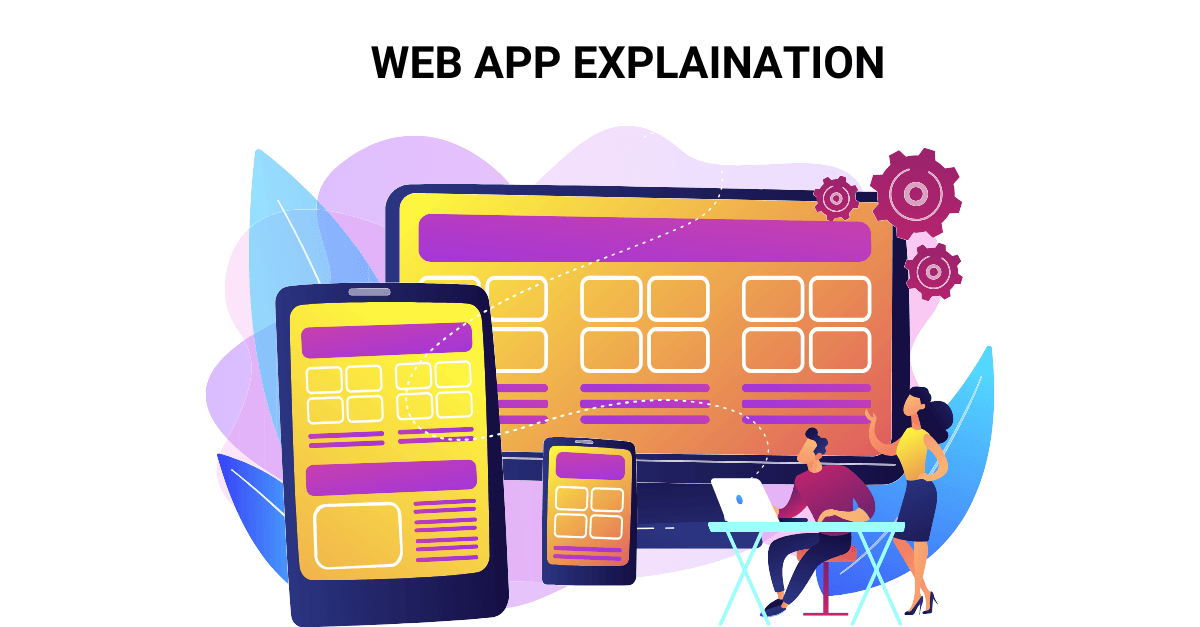
Key Differences Between Websites and Web Apps
| Websites | Web Apps | |
Purpose and Functionality
| Primarily designed to provide information. They typically offer a range of static or semi-static content, such as text, images, and videos. The main focus is on content presentation, user education, and brand communication. | Focus on functionality and user interaction. They are built to perform specific tasks or provide services, such as processing transactions, managing user data, or enabling complex interactions. Web apps often include features like forms, dashboards, and real-time updates. |
| User Interaction | User interaction is generally limited to navigation, form submissions, and possibly some basic interactive elements like comment sections or social media sharing buttons. | Designed for active user engagement. Users interact with the app by inputting data, making selections, and receiving real-time feedback. Examples include online banking systems, project management tools, and email clients. |
| Data Handling | Typically handle static content and simple forms. They may collect user data through contact forms or newsletters but do not process it in real-time. | Often handle complex data processing and storage. They can manage user accounts, track user behavior, and provide personalized content or functionality based on user input. |
| Technology Stack | Built using HTML, CSS, and JavaScript, with a focus on delivering content efficiently. They might use Content Management Systems (CMS) like WordPress or Drupal for easier management and updates. | Utilize more advanced technologies, including server-side scripting languages (like Python, Ruby, or PHP), databases (such as MySQL or MongoDB), and client-side frameworks (like React or Angular) to support their dynamic functionality. |
| Development Complexity | Generally less complex to develop and maintain. They often require less custom coding and can be built using standard web technologies or CMS platforms. | More complex due to their interactive and functional nature. Development often involves custom coding, integration with other systems, and ongoing maintenance to ensure smooth operation and security. |
| User Experience | Provide a more static and linear user experience focused on delivering content and guiding users through information. | Offer a more dynamic and interactive experience, allowing users to perform specific tasks, customize settings, and engage with the application in real-time. |
Advantage and Disadvantage between Website and Web app
Website pros and cons
Benefits
- Ease of Development and Maintenance: Websites are generally simpler to develop and maintain. They often require less specialized knowledge and can be updated more easily.
- SEO Benefits: Websites are better suited for search engine optimization (SEO), helping you attract organic traffic. Structured content and keywords can improve your search rankings.
- Cost-Effectiveness: Building and running a website is usually more affordable compared to a web app. This makes it an attractive option for businesses with limited budgets.
- Broader Audience Reach: Websites can cater to a wide audience with diverse needs, offering information, resources, and general engagement.
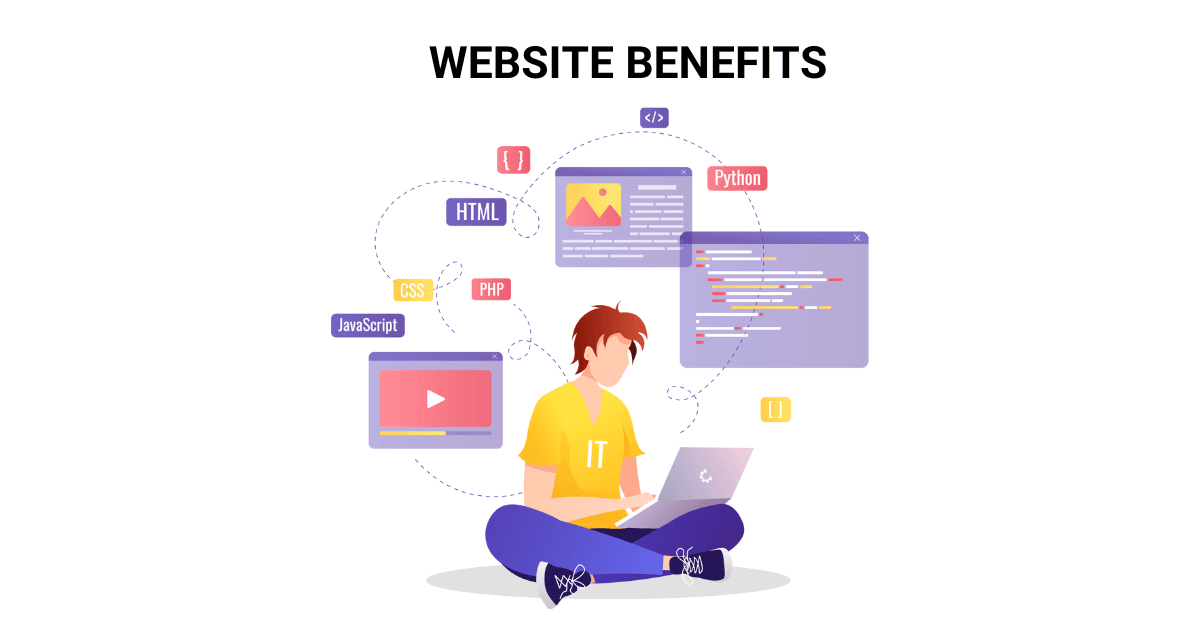
Drawbacks
- Limited Interactivity: Websites primarily offer static content and limited user interaction, which can be a drawback if your business model relies on engaging users through dynamic features.
- Functionality Constraints: While websites can include interactive elements, they are generally not as powerful or versatile as web apps in terms of functionality and user experience.
- Maintenance Over Time: Regular updates and content management are necessary to keep the website relevant and engaging, which may require ongoing effort and resources.
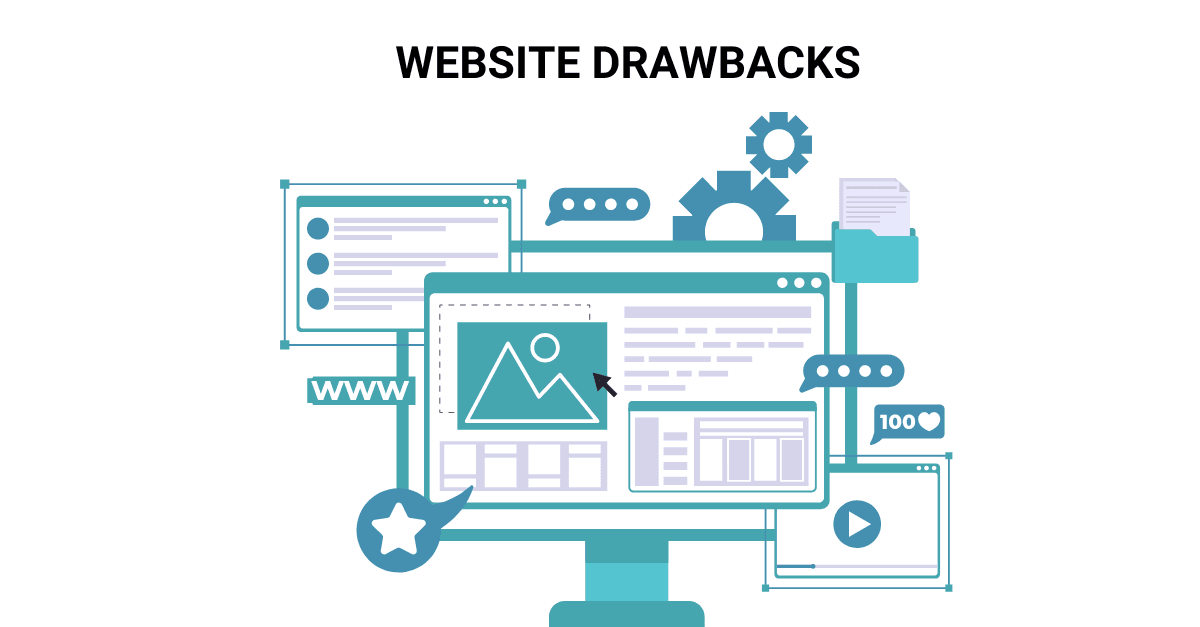
Web app pros and cons
Benefits
- Enhanced Interactivity: Web apps are designed for user engagement, offering dynamic features and personalized experiences. This makes them ideal for applications that require user input and interaction.
- Advanced Functionality: Web apps can handle complex tasks, automate processes, and provide sophisticated tools. They are suitable for custom solutions like CRM systems, project management tools, or online marketplaces.
- Improved User Experience: With interactive features and personalized responses, web apps can deliver a more engaging and satisfying user experience.
- Data Management: Web apps often excel at collecting and managing user data, enabling better analysis and decision-making.
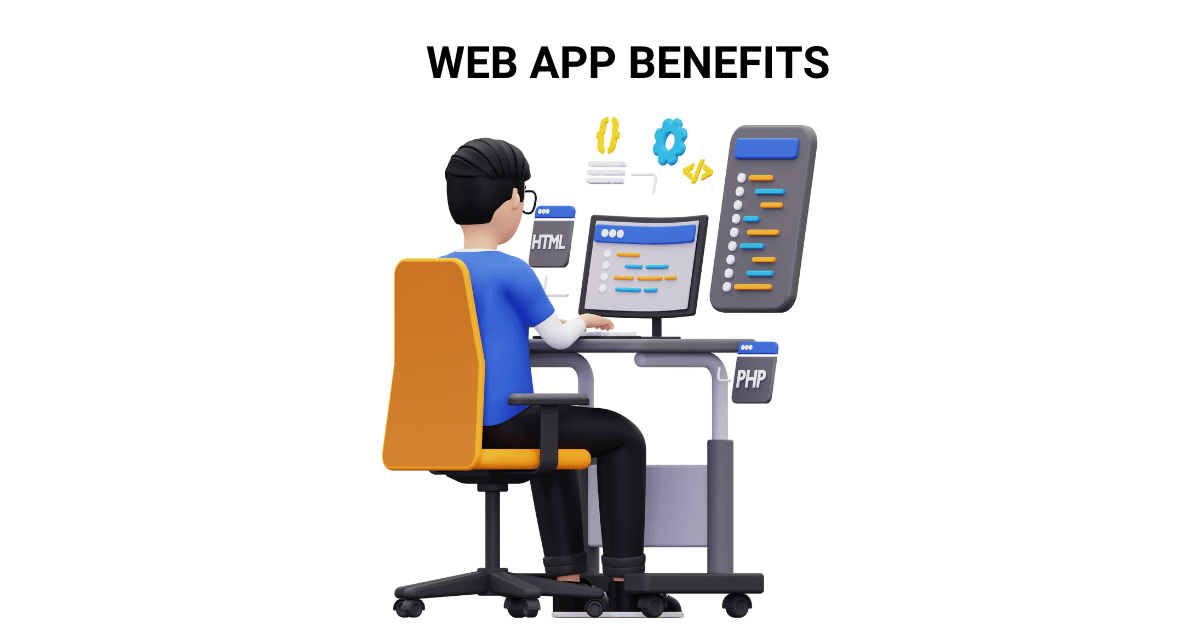
Drawbacks
- Higher Development Costs: Developing a web app can be more expensive and time-consuming due to its complexity and the need for specialized skills.
- Maintenance and Updates: Web apps often require more frequent maintenance and updates to ensure functionality and security. This can lead to increased long-term costs.
- Compatibility Issues: Web apps may face compatibility issues across different devices and browsers, requiring thorough testing and optimization.
- User Acquisition and Retention: Engaging users through a web app requires a strategy for user acquisition and retention, which can be challenging and resource-intensive.
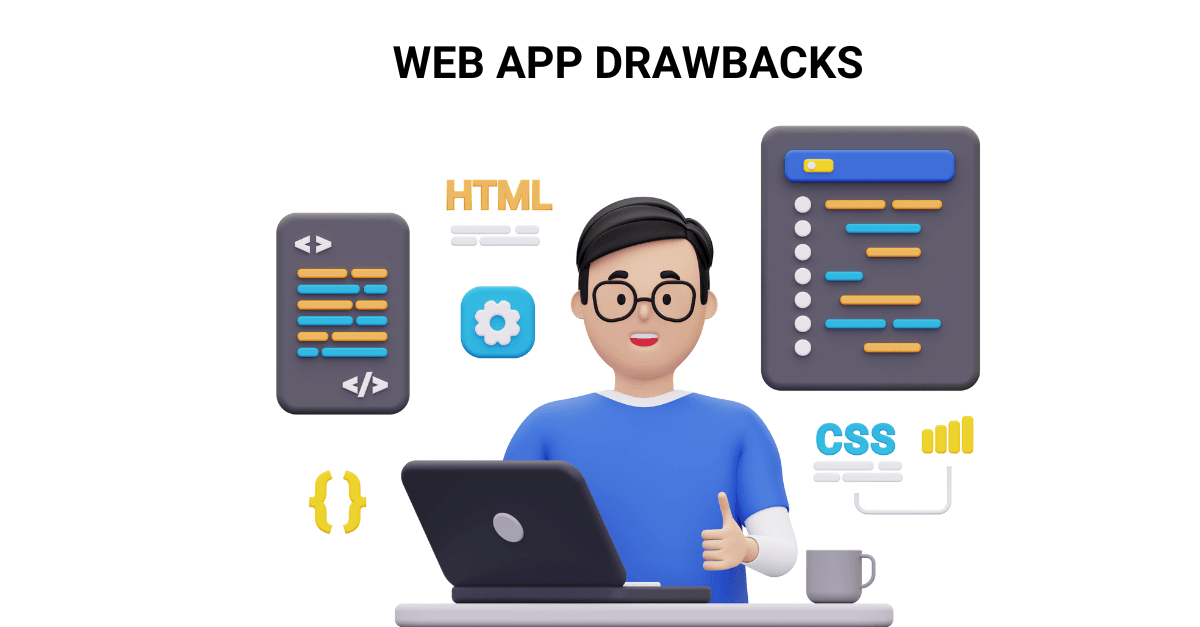
When to Choose What
Websites are best suited for:
- Branding and Information: When your primary goal is to provide information and enhance your online presence.
- SEO and Content Marketing: If you aim to drive organic traffic and improve search engine rankings.
- Cost and Complexity: For a more cost-effective solution that requires less complexity.
Web Apps are ideal for:
- User Interaction: When your business model requires regular user engagement and interaction.
- Efficiency and Functionality: For complex tasks, automation, and personalized services.
- Ongoing Engagement: If you need to create a more immersive and interactive user experience.
Special case in integrating website and web app
In many cases, businesses benefit from a combination of both a website and a web app. A website can serve as the public face of your brand, providing essential information and driving traffic, while a web app can offer interactive features and specialized services to your users.
Gamob would like to give you an example to know more about this integration. A retail business might use a website to attract potential customers with engaging content and promotional offers. Once visitors are interested, they can use a web app for a personalized shopping experience, managing their orders, or accessing customer support.
Additional information
The information above is collected by Gamob experts and researchers. Furthermore, if you want to look for GCPP to optimize your revenue on websites and web apps, let's contact us.
Why Gamob?
Gamob is a Google Certified Publishing Partner that empowers over 10,000 publishers helping them deliver expert solutions in Product and User Acquisition Consultancy, Revenue & Inventory Optimization, and Inventory Quality Assurance. Our mission is to boost publishers' and ad networks' success, ensuring quality, efficiency, and sustainable growth through trusted, innovative partnerships.
---------------------
Gamob | GCPP - Empower your monetization journey
Email: [email protected]
Website: www.gamob.com
Linkedin: www.linkedin.com/company/gamob-gcpp
LATEST
Stay informed with our latest blog posts.

Discover the top 15 ad networks for publishers in 2024 and boost your earnings. Learn which networks offer the highest payouts and best features.
Tracy Nguyen
July 15, 2024

Unlock 2024's app monetization secrets! Get the latest strategies for publishers, plus how Gamob is revolutionizing mobile ad revenue growth.
Tracy Nguyen
July 15, 2024

Want to excel in game development? The Digital Game Maturity Model (DGMM) is your go-to guide. Learn the new standards today.
Tracy Nguyen
July 15, 2024